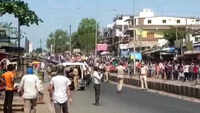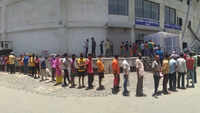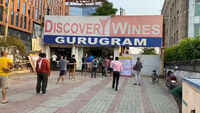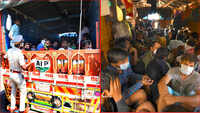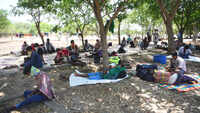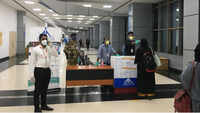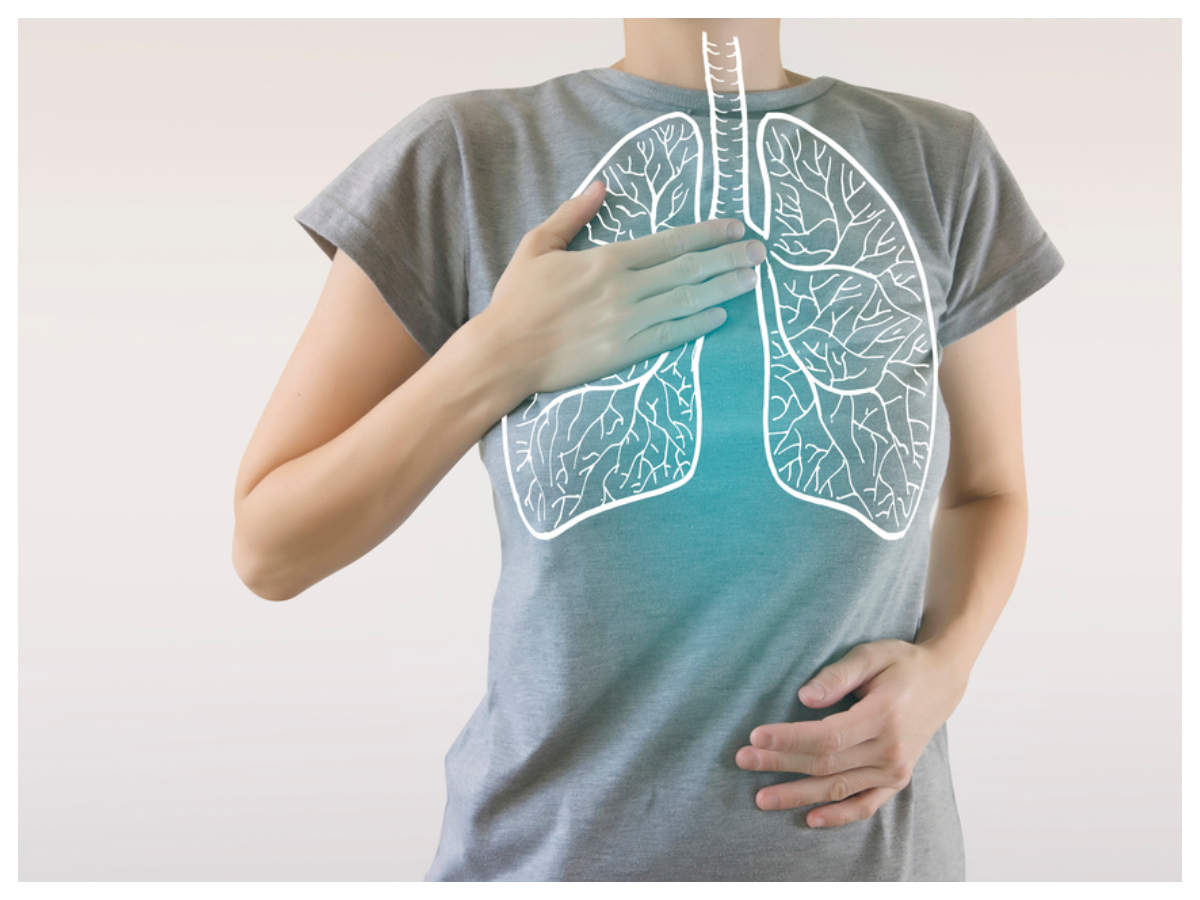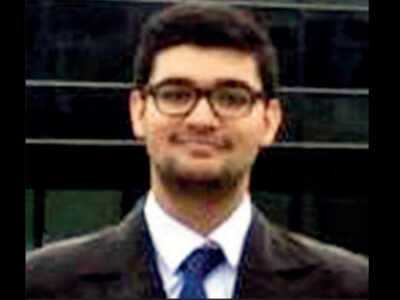
AHMEDABAD: For Ujjawal Panchal, a 21-year-old undergraduate who is in his final year at a college in Chennai, getting stuck in his hometown of Ahmedabad due to the lockdown seems to have opened new doors.
At a time when the country is grappling with the shortage of Covid-19 testing kits, this city-based youth has set up a model where chest X-ray scans can detect SARS-Cov-2 infection. And the cost is about one-tenth of a regular Covid-19 test.
Panchal has put this technique online for free and people can upload their X-ray images and within seconds, the results flash on the screen.
The idea came to him recently when he was studying time frequency analysis to improve computer vision for recognizing characters.
He came across a few articles on medical imaging using computer vision. This was a few days ahead of the nationwide lockdown announced by Prime Minister Narendra Modi in March.
The artificial intelligence-powered model utilizes convolutional neural networks used in chest X-ray which are useful in detecting Covid-19 when there are not enough number of radiologists or when the number of cases go too high.
“For a data scientist, the main power of every AI model is data and the quality of data,” says Panchal who is studying at SRM Institute of Science and Technology, Chennai. “I started collecting data ahead of the lockdown. So, at a time when there is concern about genetically mutating coronavirus, we have used a robust dataset for our model with inputs from China, Italy, Spain, Canada and several other places.”
Many radiologists and doctors have shown interest in his work. Recently, a private hospital used Panchal’s method and achieved about 84% accuracy in the results.
Presently, he is working in association with his mentor from Stanford University Manny Ko to further enhance the AI model, says Panchal.
Dr Deepak Vohra, an Ahmedabad critical care specialist, said that the model prepared by Panchal is very effective and it should be extensively used for the detection of Covid-19.
Over the past few days, many such models have come on the internet which claim to achieve high classification accuracy. “However, these models can only classify correctly for healthy patients and patients with Covid-19,” according to Panchal.
“The problem is many of the symptoms seen in Covid-19 are also present in patients with other diseases. The accuracy of these other models falls drastically when given such cases. This renders these models unusable.”
What makes Panchal’s dataset unique is that along with samples of Covid-19 it contains images with other similar diseases including pneumonia, chlamydophila, fungal pneumonia, klebsiella, legionella, MERS, SARS and others, he adds.
At a time when the country is grappling with the shortage of Covid-19 testing kits, this city-based youth has set up a model where chest X-ray scans can detect SARS-Cov-2 infection. And the cost is about one-tenth of a regular Covid-19 test.
Panchal has put this technique online for free and people can upload their X-ray images and within seconds, the results flash on the screen.
The idea came to him recently when he was studying time frequency analysis to improve computer vision for recognizing characters.
He came across a few articles on medical imaging using computer vision. This was a few days ahead of the nationwide lockdown announced by Prime Minister Narendra Modi in March.
The artificial intelligence-powered model utilizes convolutional neural networks used in chest X-ray which are useful in detecting Covid-19 when there are not enough number of radiologists or when the number of cases go too high.
“For a data scientist, the main power of every AI model is data and the quality of data,” says Panchal who is studying at SRM Institute of Science and Technology, Chennai. “I started collecting data ahead of the lockdown. So, at a time when there is concern about genetically mutating coronavirus, we have used a robust dataset for our model with inputs from China, Italy, Spain, Canada and several other places.”
Many radiologists and doctors have shown interest in his work. Recently, a private hospital used Panchal’s method and achieved about 84% accuracy in the results.
Presently, he is working in association with his mentor from Stanford University Manny Ko to further enhance the AI model, says Panchal.
Dr Deepak Vohra, an Ahmedabad critical care specialist, said that the model prepared by Panchal is very effective and it should be extensively used for the detection of Covid-19.
Over the past few days, many such models have come on the internet which claim to achieve high classification accuracy. “However, these models can only classify correctly for healthy patients and patients with Covid-19,” according to Panchal.
“The problem is many of the symptoms seen in Covid-19 are also present in patients with other diseases. The accuracy of these other models falls drastically when given such cases. This renders these models unusable.”
What makes Panchal’s dataset unique is that along with samples of Covid-19 it contains images with other similar diseases including pneumonia, chlamydophila, fungal pneumonia, klebsiella, legionella, MERS, SARS and others, he adds.
Quick Links
Kerala Coronavirus Helpline NumberHaryana Coronavirus Helpline NumberUP Coronavirus Helpline NumberBareilly NewsBhopal NewsCoronavirus in DelhiCoronavirus in HyderabadCoronavirus in IndiaCoronavirus symptomsCoronavirusRajasthan Coronavirus Helpline NumberAditya ThackerayShiv SenaFire in MumbaiAP Coronavirus Helpline NumberArvind KejriwalJammu Kashmir Coronavirus Helpline NumberSrinagar encounter
Get the app

